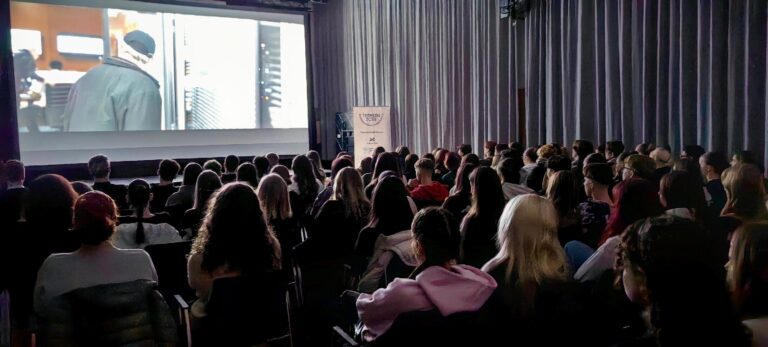The project of the European Capital of Culture has reached key milestones, including the signing of a contract with the Ministry of Culture of the Slovak Republic, paving the way for additional activities next year. In the preparatory phase, the team has not only been setting up processes but has also initiated projects focusing on development and public spaces. A public survey was conducted as part of one of the projects. Almost everyone addressed in the survey considers it important that Trenčín will be the European Capital of Culture in 2026.
Significant Steps
The European Capital of Culture project continued its preparatory phase this year. The Trenčín 2026 team is focused on preparing content, environment, and processes. In addition, several programs are already underway.
From a procedural perspective, the Trenčín 2026 team considers three things as the most important milestones of 2023: the adoption of the law on the European Capital of Culture, the adoption of the state aid scheme, and the signing of the contract with the Ministry of Culture of the Slovak Republic.
“All three were preceded by months of intense work. The result is the existing law and the establishment of conditions for the European Capital of Culture project,” explains Lenka Kuricová, director of Trenčín 2026, and adds, “Signing the contract with the Ministry of Culture of the Slovak Republic means the possibility of setting conditions with the leaders of individual projects. Thanks to this, additional activities will be launched next year.”
Current Audience Survey
Part of the European Capital of Culture project is monitoring its progress and outcomes. Trenčín 2026 organized an audience survey at the three-day event Garáž in September of this year. A total of 105 individuals participated, ranging in age from 18 to 78, with the majority being in their thirties.
The survey highlights the information on how many people feel connected to Europe. A whopping 80% of respondents feel very European, and another 14% feel somewhat European. Almost all respondents (90%) consider it important that Trenčín will be the European Capital of Culture in 2026.
3rd round of Runway ǀ Culture Professionals
Engagement of People, Courses, and Experiences
Thanks to the European Capital of Culture, the Institute of Participation Trenčín (IPT) started operating at the City Hall this year. Its purpose is to improve conditions for engaging people from Trenčín in the city’s life. “For example, we are currently implementing participatory budgeting projects with primary schools through IPT. It focuses on students proposing solutions, voting for them, and seeing how they can contribute to the functioning of the school,” explains Stanislav Krajči, the participation and inclusion manager at Trenčín 2026.
The third semester of the Runway | Culture Professionals course welcomed new participants in the fall, and the Runway | English for Culture and Tourism course is ongoing. Both courses target people throughout the Trenčín region, with Runway | Culture Professionals gaining supporters from all over Slovakia.
However, the most well-known project remains Garáž, known from the candidacy period. Although Garáž landed in Park M.R. Štefánika again this year, it focused on young bands. An expert jury selected a diverse range of young Slovak music genres, attracting all age groups to the three-day event in Trenčín. The bands returned to Trenčín in November to learn more about financial management, collaboration with publishers, radio, and festivals from industry experts.
Authors of photos Garáž’23 from the left: Braňo Vartovník, Juraj Majerský a Jakub Michel
The Largest Project Focuses on Public Space
The largest project under the European Capital of Culture is also underway. It’s called “Mesto pretvorené” (City Reimagined), and it is dedicated to improving the quality of public space. “Thanks to this project, a municipal curator has taken up his position at the City Hall this year, focusing on the visual aspects of the city. The advertising manual, which will set rules for placing advertisements, is in the preparation stage to serve businesses well,” mentions Lívia Gažová, responsible for architecture and public space at Trenčín 2026. She adds, “We will talk a lot about public space next year, and there will be several events on this topic for both the general and professional public.”
From left: Participation in Strasbourg as part of Cities in Placemaking, the new city curator, and the first workshop within the City Reimagined project.
The project European Capital of Culture Trenčín 2026 would not be possible without the support of partners. Trenčín 2026 is financially supported by the City of Trenčín, Trenčín Self-Governing Region, and the Ministry of Culture of the Slovak Republic. The European Union is a partner of the project.














